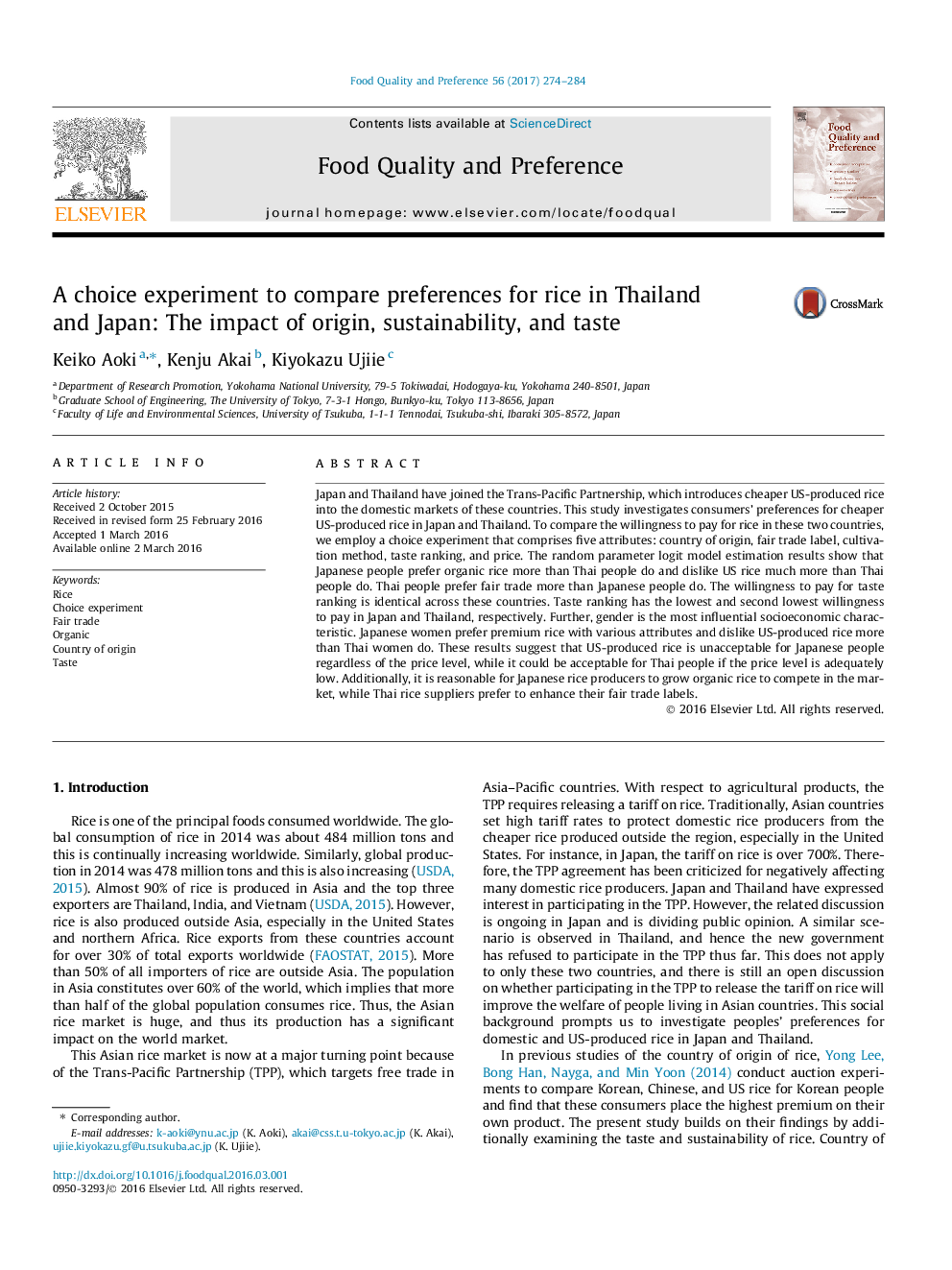| کد مقاله | کد نشریه | سال انتشار | مقاله انگلیسی | نسخه تمام متن |
|---|---|---|---|---|
| 5736122 | 1411895 | 2017 | 11 صفحه PDF | دانلود رایگان |
- This study investigates differences in rice preferences between Japan and Thailand.
- A choice experiment is employed with five attributes-country of origin, fair trade label, cultivation method, taste, and price.
- Japanese people prefer organic rice and dislike US rice more than Thai people do.
- Thai people prefer fair trade more than Japanese people do.
- After joining the TPP, Thailand could accept cheaper US rice unlike Japanese.
Japan and Thailand have joined the Trans-Pacific Partnership, which introduces cheaper US-produced rice into the domestic markets of these countries. This study investigates consumers' preferences for cheaper US-produced rice in Japan and Thailand. To compare the willingness to pay for rice in these two countries, we employ a choice experiment that comprises five attributes: country of origin, fair trade label, cultivation method, taste ranking, and price. The random parameter logit model estimation results show that Japanese people prefer organic rice more than Thai people do and dislike US rice much more than Thai people do. Thai people prefer fair trade more than Japanese people do. The willingness to pay for taste ranking is identical across these countries. Taste ranking has the lowest and second lowest willingness to pay in Japan and Thailand, respectively. Further, gender is the most influential socioeconomic characteristic. Japanese women prefer premium rice with various attributes and dislike US-produced rice more than Thai women do. These results suggest that US-produced rice is unacceptable for Japanese people regardless of the price level, while it could be acceptable for Thai people if the price level is adequately low. Additionally, it is reasonable for Japanese rice producers to grow organic rice to compete in the market, while Thai rice suppliers prefer to enhance their fair trade labels.
Journal: Food Quality and Preference - Volume 56, Part B, March 2017, Pages 274-284
